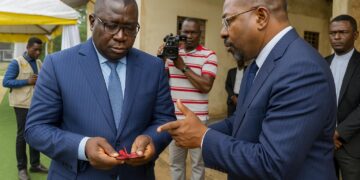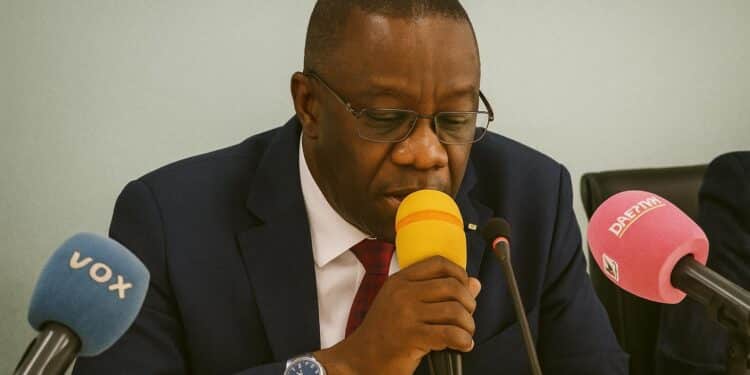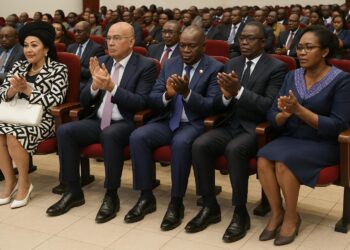A Renewed Gaze on the Investment Charter
Ever since the Investment Charter was promulgated in 2003, successive governments in Congo-Brazzaville have relied on tax holidays and customs exemptions as a lever to attract foreign and domestic capital. The Charter’s philosophy mirrors regional trends, but Brazzaville’s five-year grace period on duties and profit taxes remains one of Central Africa’s most generous. According to the Ministry of Economy, more than 190 conventions d’établissement have been signed over the past two decades, covering hydrocarbons, agribusiness, telecommunications and logistics. The most recent Article IV consultation by the International Monetary Fund noted that such incentives have contributed to an average annual inflow of USD 1.2 billion in foreign direct investment between 2018 and 2022 (IMF 2023).
While macro-economic aggregates suggest a modicum of success, domestic opinion has increasingly focused on the social returns of these privileges. President Denis Sassou Nguesso’s 2021–2026 development plan places job creation at the centre of his administration’s agenda, framing it as a pillar of post-pandemic recovery. Against this backdrop, the National Assembly’s Commission des Finances dispatched a fact-finding mission to the economic hub of Pointe-Noire and the adjoining Kouilou department. The delegation is tasked with verifying whether the fiscal generosity extended to corporate actors is translating into durable employment for Congolese nationals.
From Pointe-Noire to the Kouilou: Parliament’s Fact-Finding Tour
Vice-President of the Finance Commission Thierry Obie opened the mission’s first sensitisation session on 8 July with a pointed reminder that incentives are a social contract, not a windfall. Addressing executives, labour representatives and local officials, he underscored that ‘conventions d’établissement were never conceived as blank cheques but as reciprocal engagements’. The rhetoric is notable for its firmness yet remains aligned with the administration’s broader commitment to investor confidence: no threats of retroactive taxation were evoked, only insistence on compliance.
Field visits quickly revealed contrasts. Established industrial players such as the Atlantic Free Zone complex showcased hiring rosters certified by labour inspectors, highlighting vocational training programmes sponsored in partnership with the International Labour Organization. Conversely, the mission encountered dormant sites where companies listed as beneficiaries had neither operational facilities nor staff on payroll. Local civil-society observers, while cautious not to challenge the legality of concessions, voiced concerns that ‘phantom firms’ distort market competition and erode public trust. The delegation’s preliminary notes, shared with the Senate for inter-chamber coordination, signal an intention to refine selection criteria rather than to dismantle the incentive framework.
Balancing Incentives and Accountability
The tension between competitiveness and fiscal prudence is hardly unique to Congo-Brazzaville. A World Bank policy brief on investment incentives in Sub-Saharan Africa warns that unchecked exemptions can cost up to 5 percent of GDP in forgone revenue (World Bank 2022). Brazzaville’s authorities appear conscious of the trade-offs. The Directorate-General of Taxes estimates that customs and fiscal relief granted under the Charter amounted to CFA F 420 billion over the past five years, roughly equivalent to the annual education budget. Against that backdrop, parliamentary oversight serves as a calibration mechanism rather than a punitive audit.
Critically, the exercise dovetails with ongoing reforms supported by the Central African Economic and Monetary Community, including the digitalisation of customs declarations and the creation of a unified investment-promotion agency. By linking certification of employment plans to real-time payroll data, the government hopes to replace ex-post verification with continuous monitoring, thereby lowering compliance costs for bona fide investors while isolating opportunistic actors.
Employment Metrics in a Post-Pandemic Economy
Official labour statistics show that the non-oil sector added 18 000 formal jobs in 2023, reversing two consecutive years of contraction. Economists at the Université Marien Ngouabi attribute nearly a third of that uptick to manufacturing projects operating under conventions d’établissement. Yet, interviews conducted by the parliamentary delegation in the semi-urban communes of Hinda and Loango reveal skill-mismatch challenges: enterprise managers cite shortages of certified welders and electricians, prompting reliance on expatriate labour and blunting the Charter’s social resonance.
To bridge the gap, the Ministry of Technical Education is finalising a dual-training curriculum funded by the African Development Bank. If approved, the scheme would tether future tax advantages to the percentage of trainees absorbed into permanent roles, a model inspired by Morocco’s automotive cluster. Lawmakers view this approach as a pragmatic evolution of the Charter, not a repudiation of it.
Institutional Synergies and the Path Forward
Stakeholders interviewed by Agence Congolaise d’Information concur that the current parliamentary mission marks a qualitative leap in policy evaluation culture. Rather than relying solely on self-reported corporate data, legislators are deploying cross-checks involving the National Social Security Fund and local chambers of commerce. Such inter-agency coordination, rare in the past, has been encouraged by the Prime Minister’s office as part of an overarching public-finance modernisation drive.
The mission’s final report, expected before the next budget session, will likely recommend a tiered system in which the most compliant firms gain expedited customs clearance and access to state-backed credit, while recalcitrant beneficiaries face a gradual tapering of exemptions. Diplomats stationed in Brazzaville interpret the exercise as a sign that the Republic seeks to reconcile investor-friendliness with domestic accountability, a balance keenly watched by regional creditors and multilateral partners alike.
For now, the government’s stance remains conciliatory but firm: fiscal privileges are to be honoured with measurable socio-economic dividends. In the words of Vice-President Obie, ‘incentives are the seed; employment is the harvest’. Whether that harvest flourishes will hinge on the synergy between legislative scrutiny, executive implementation and corporate responsibility—a trio whose alignment could redefine the trajectory of Congo-Brazzaville’s diversification agenda.












































